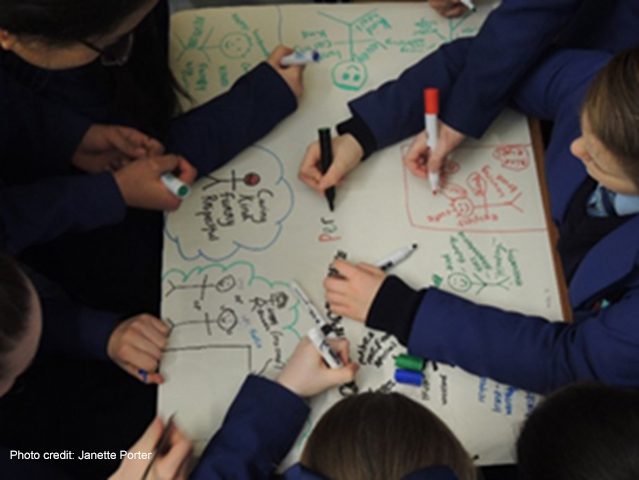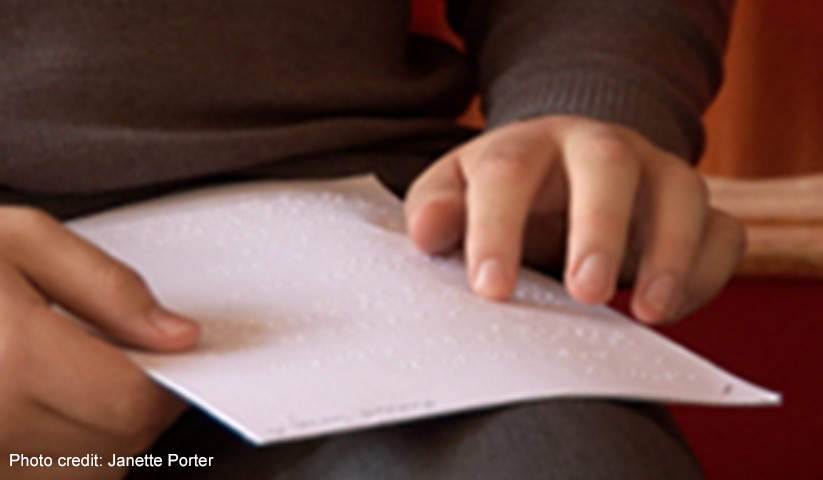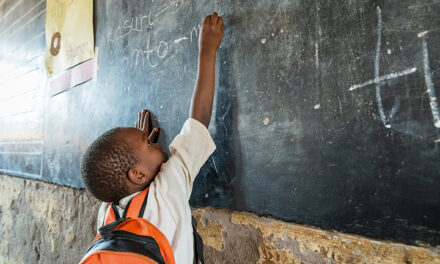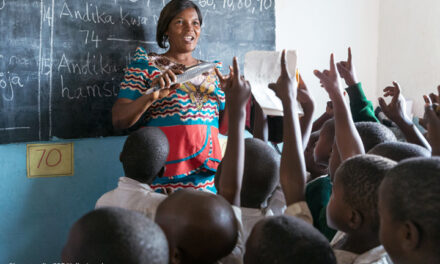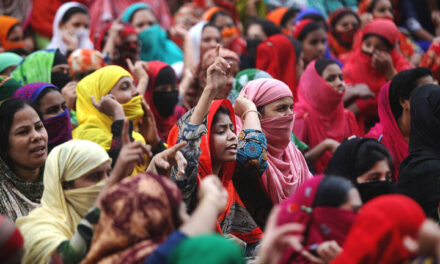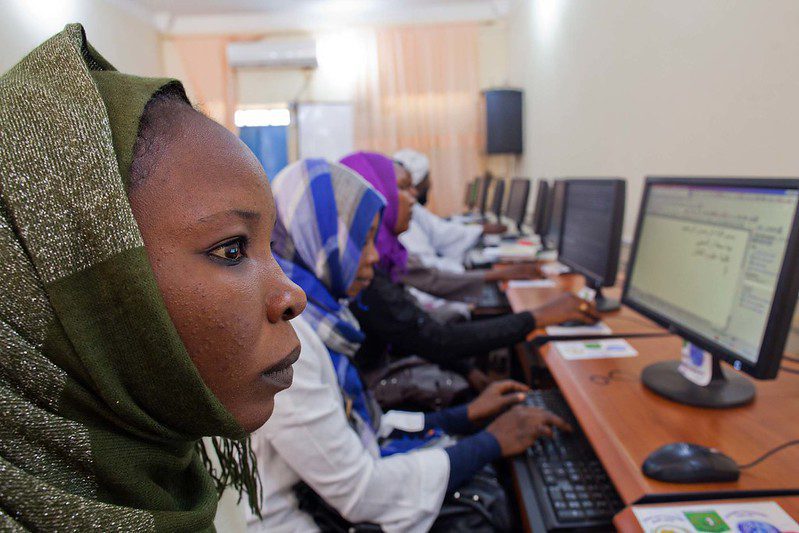This blog was written by Janette Porter (lecturer in Education at Liverpool John Moores University, member of her university ethics and research council, artist and activist, and Chair of Trustees of Sreepur Village, Bangladesh) and Kay Standing (lecturer in Sociology at Liverpool John Moores University UK). The blog is based on a presentation given at the 2023 UKFIET conference.
Introduction
Gender based violence (GBV) is a global issue which affects people of all ages. Education is key to preventing GBV, and school-based interventions can be an important way to raise awareness and prevent dating and relationship violence and GBV amongst young people. We report on a healthy relationship education project in UK schools, and the creative methods used to engage young people as part of the project.
The need for relationship education in schools
Relationship education is compulsory in all UK primary and secondary schools since September 2020, however, the global Covid-19 pandemic delayed its introduction, and the quality of education provided varies across schools. The current UK government definitions of domestic violence do not include those under the age of 16, but young people of all ages can experience relationship abuse. The World Health Organization reported that 30% of women between 15 and 19 have experienced GBV in their relationships. In the UK, young people aged 16-24 are at most at risk of dating and relationship violence, making early intervention essential. For young people aged 12-19 with disabilities, reports of violence are more than twice the rates of those without a disability
Embedding relationship education into the curriculum is one way to tackle growing rates of reported GBV, including online abuse, as schools are settings where young people are socialised into gender norms and where significant amounts of dating and relationship violence and GBV occurs.
Our work in schools
Between 2012-2019 we have delivered a Healthy Relationship project in 30 schools in Merseyside, UK, including four Special Educational Needs and Disability (SEND) schools. Workshops were delivered to 695 pupils, and shared with an audience of 3,293 through assemblies and other events. Additionally, we trained 559 school staff in healthy relationships education.
Pupils learnt about healthy relationships and domestic abuse within an age, ability and culturally-appropriate context. Workshop content was designed for pupils’ needs and schools’ requests. The project focused on peer-to-peer relationships and took a gendered approach, reflecting on the GBV statistics. We delivered the project in mixed, single-sex, as well as faith and non-faith schools.
Workshops focused on how to identify early warning signs in unhealthy relationships. Creative methods enabled the pupils to gain confidence to express themselves in front of their peers through drama and role-play, and to build relationships of trust. The Perfect Partner activity aimed to get pupils to question their idea of what makes a ‘perfect’ partner. Pupils drew their perfect partner, then reflected on the physical, emotional, practical, and material attributes drawn. Towards the end of the workshops we would revisit this, discussing how the ‘perfect partner’ was now considerably different to the original drawing, reflecting the young people’s growing understandings of healthy relationships and the role of emotional support.
In SEND schools, resources were co-designed with pupils to suit their specific needs, including using scribes, readers and photo books, as well as audio visual aids. We also co-developed a resource in Braille with pupils for use in schools beyond the life of the project.
Going forward/what we learnt
At the end of the project, pupils had a better understanding of what healthy and unhealthy relationships were. They were able recognise the early warning signs of abuse in relationships and have the knowledge to make positive choices about relationships. They felt more confident talking to their family and friends about relationships and they knew where to go for support.
“I’ve learned about my own rights as a person.”
Education alone is not enough. Systems for reporting and support need be in place to support young people both in school and in the wider community/through external agencies.
Quality training for school staff is essential for the delivery of a relationship education school curriculum. Safeguarding young people is key to supporting the relationship education curriculum. The school safeguarding officer bridges the gap between the school and community, signposting those in need to relevant agencies.
The current UK legislation aims to reach all pupils in state schools, however we must address the problem of who delivers this sensitive subject, are teachers trained and confident to deliver relationship education? Where is it delivered? Is it to be embedded into the curriculum rather than an opt in/out activity? Who are we failing or not reaching in our delivery? How can relationship education be delivered in a relevant and culturally-appropriate way? What happens if reporting and safeguarding policies and laws are not in place?
The global #MeToo campaign has given people the confidence to speak out about abuse, and there are many examples of early educational interventions to prevent GBV globally, and good practice needs to be shared. However, better systems are required globally to support those who do speak out. Relationship education needs to be tailored to the needs of pupils and the context in which they live and work. It needs to be embedded within the school and community on a long-term basis, working with all genders and generations.
Going forward, our work in Nepal with Global Action Nepal, and in Bangladesh, aims to work with local grassroots organisations, schools and communities to develop appropriate relationship education that reflects local laws and contexts. Our work continues to reach a wider audience with the sole purpose to education young people about relationship abuse.
————————-
The Healthy Relationship project was funded by Children in Need, Liverpool John Moores University and Tender, Acting to End Abuse.
————————-
References
- Hester, M., and Westmarland, N. (2005). Tackling domestic violence: Effective interventions and approaches. London: Home Office Research Study no.290.
- Porter, J. & Standing, K. (2020). Love Island and relationship education, Frontiers in Sociology. Sec. Gender, Sex & Sexualities Volume 4 – 2019
- Porter, J. & Standing, K. (2018). Love Island: Adam shows teenagers how not to treat romantic partners. The Conversation.
- Sander-McDonagh, E., Rogers, S., Horvath, M., and Selwood, S. (2016). Evaluation report of the Tender Healthy Relationships project – National Partnership Programme. Middlesex University. Forensic Psychological Services.
- Standing, K., Parker S. & Bista, S. (2016.) Grassroots responses to violence against women and girls in post-earthquake Nepal: lessons from the field, Gender & Development, 24:2, 187-204.
- Standing, K., Parker, S. & Bista, S. (2017). ‘It’s breaking quite big social taboos’ violence against women and girls and self-defence training in Nepal, Women’s Studies International Forum, Volume 64, 51-58.
- Stanley, N., Ellis, J., Farrelly, N., Hollinghurst, S., Bailey, S., and Downe, S. (2015). Preventing domestic abuse for children and young people (PEACH): a mixed knowledge scoping review. Public Health Research 3.7.
For help or support please contact
ManKind Initiative
Amnesty International domestic abuse

